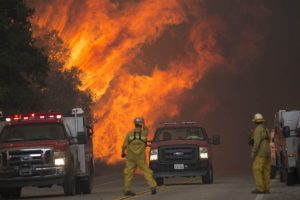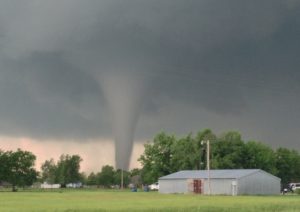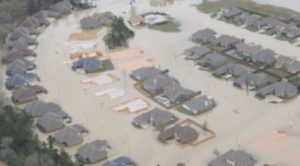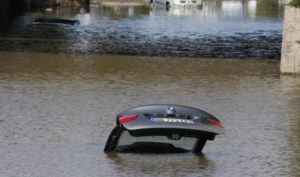The Lord be with you
 In recent months, tragedies have once again struck our nation. We have had floods and wildfires this time. I remembered an article by Dr. David P. Scaer and published by Concordia Theological Seminary back in 2013 when a tornado devastated the city of Moore, Oklahoma. Though the particulars are different, the issues remain the same. The article was titled: Why Do Bad Things Happen to Good People? As it is once again timely, I’m sharing it below. Simply change the names and disasters to Southern California, Maryland or Louisiana and wildfires or floods.
In recent months, tragedies have once again struck our nation. We have had floods and wildfires this time. I remembered an article by Dr. David P. Scaer and published by Concordia Theological Seminary back in 2013 when a tornado devastated the city of Moore, Oklahoma. Though the particulars are different, the issues remain the same. The article was titled: Why Do Bad Things Happen to Good People? As it is once again timely, I’m sharing it below. Simply change the names and disasters to Southern California, Maryland or Louisiana and wildfires or floods.
Why Do Bad Things Happen to Good People?
Dr. David P. Scaer
When an unanticipated tragedy strikes a community two questions may come to mind. First, why does a good God allow such horrible evil? Or is God punishing the inhabitants for sins? Devastation by tornado in Moore, Okla., is hardly the first time these questions have been raised. The 18th century earthquake that destroyed Lisbon, Portugal, gave the French philosopher Voltaire a reason to ridicule the existence of God. This is the theodicy question of how a benevolent omnipotent God can allow evil in the world. It might be better not to believe in God, so it is reasoned. Since Moore is in the middle part of America known as the Bible Belt, it is the second question that has been raised by some preachers. Was the devastation on May 20, 2013, a sign of God’s displeasure over the people’s sins? This is what some evangelical preachers recently claimed. To date, these sins have not been identified and so the devastated victims who have lost loved ones and property are left to look within themselves to discover what sins have brought this tragedy in to their lives.
 In spite of some warnings, the tornado took most in Moore by surprise. Some found refuge and were spared. Others did not. By the time the tornado moved on, it destroyed one school and left another in shambles. A recent count reports that 24 lives, eight of them children, were lost. While those children will never return to their classes, the surviving children returned to classes in other buildings to complete the school year. Moore suffered an unimaginable tragedy, but life in adjacent communities would go on as usual. It was as if the words of Jesus had been fulfilled that one was left and another taken (Matt. 24:11; Luke 17:34-35). This contrast between the fortunate and the unfortunate could not be greater. Piled up on one side of the street is the debris of the destroyed home fit now only for bulldozers. Facing the ugly destruction of houses dismantled into pieces of lumber, pink-colored insulation, shingles no longer attached to roofs and mangled furniture are houses that remain untouched on the other side of the street. No shingle on the roof is out of place and no window broken. Their lawns are ready for Saturday morning suburban chores of fertilizing, watering and mowing. This contrast between devastation on one side of the street facing untouched homes on the other side of the street has given some reason to conclude that those who lost all they owned were greater sinners than those who escaped the tornado’s fury. Jesus already answered this dilemma when some asked whether those killed by the falling tower in Siloam were greater sinners than those who lived in Jerusalem. If we dare paraphrase Luke 13:4: “Or those 28 upon whom the school buildings and houses in Moore fell and killed them, do you think that they were worse offenders than all the others who dwelt in Oklahoma City–or for that matter, those who lived just across the street?” The answer is clear. Tragedies, even massive ones caused by tornadoes, are not signs of God’s displeasure over sin. (Curious is Jesus’ comparison of Siloam with Jerusalem, the city whose inhabitants rejected Him and put Him to death.)
In spite of some warnings, the tornado took most in Moore by surprise. Some found refuge and were spared. Others did not. By the time the tornado moved on, it destroyed one school and left another in shambles. A recent count reports that 24 lives, eight of them children, were lost. While those children will never return to their classes, the surviving children returned to classes in other buildings to complete the school year. Moore suffered an unimaginable tragedy, but life in adjacent communities would go on as usual. It was as if the words of Jesus had been fulfilled that one was left and another taken (Matt. 24:11; Luke 17:34-35). This contrast between the fortunate and the unfortunate could not be greater. Piled up on one side of the street is the debris of the destroyed home fit now only for bulldozers. Facing the ugly destruction of houses dismantled into pieces of lumber, pink-colored insulation, shingles no longer attached to roofs and mangled furniture are houses that remain untouched on the other side of the street. No shingle on the roof is out of place and no window broken. Their lawns are ready for Saturday morning suburban chores of fertilizing, watering and mowing. This contrast between devastation on one side of the street facing untouched homes on the other side of the street has given some reason to conclude that those who lost all they owned were greater sinners than those who escaped the tornado’s fury. Jesus already answered this dilemma when some asked whether those killed by the falling tower in Siloam were greater sinners than those who lived in Jerusalem. If we dare paraphrase Luke 13:4: “Or those 28 upon whom the school buildings and houses in Moore fell and killed them, do you think that they were worse offenders than all the others who dwelt in Oklahoma City–or for that matter, those who lived just across the street?” The answer is clear. Tragedies, even massive ones caused by tornadoes, are not signs of God’s displeasure over sin. (Curious is Jesus’ comparison of Siloam with Jerusalem, the city whose inhabitants rejected Him and put Him to death.)
 Evangelical preachers who even suggest that God is carrying out vengeance on sin do not hold that Christ made atonement for all sin. This view that God punishes individual sins with particular punishments may be more common than we think and may appear among some Lutherans. In our secret hearts we may have similar thoughts. When we see others facing misfortune, it is tempting to say, at least to ourselves, that he or she had it coming. We can internalize our own tragedies and disappointments believing that God is punishing us for a particular sin. To escape the horror of thinking that God is punishing us, we can be led to unbelief. A God who does not care may not exist at all. This is a theodicy question of trying to answer how a good God can allow evil. An English New Testament scholar became an atheist when the Manchester United football (soccer) team was killed in a plane crash. Since God could not allow such evil, so he thought, God does not exist. Questions of God’s benevolence and His existence are not unknown in the Bible. Facing loss of children and property, Job is asked by his friends to search his soul to determine what sin had brought such horrible destruction. The book of Job concludes that even though we can ask the questions of why God allows such evils in our lives, the world’s Creator does not need our counsel and advice in how He accomplishes His will. From His cross Jesus faces the prospect that God might have forsaken Him. In the case of Job’s losses and Jesus’ death by crucifixion, God was at work accomplishing His will. In these cases as in most, God’s purposes may not be evident. As in the case of Joseph who was sold by his brothers into slavery, God’s purposes came to light later. Sometimes we will never live long enough to know God’s intentions. God is at work in an imperfect and corrupt world accomplishing His good will. From our perspective things often do not work out the way we want. This is hard to accept, but coming to accept these things is what faith is all about. We pray in the Lord’s Prayer “Thy will be done.” In facing death, Jesus prayed this prayer and through the evil of crucifixion God redeemed the world and showed His love for Jesus by raising Him from the dead.
Evangelical preachers who even suggest that God is carrying out vengeance on sin do not hold that Christ made atonement for all sin. This view that God punishes individual sins with particular punishments may be more common than we think and may appear among some Lutherans. In our secret hearts we may have similar thoughts. When we see others facing misfortune, it is tempting to say, at least to ourselves, that he or she had it coming. We can internalize our own tragedies and disappointments believing that God is punishing us for a particular sin. To escape the horror of thinking that God is punishing us, we can be led to unbelief. A God who does not care may not exist at all. This is a theodicy question of trying to answer how a good God can allow evil. An English New Testament scholar became an atheist when the Manchester United football (soccer) team was killed in a plane crash. Since God could not allow such evil, so he thought, God does not exist. Questions of God’s benevolence and His existence are not unknown in the Bible. Facing loss of children and property, Job is asked by his friends to search his soul to determine what sin had brought such horrible destruction. The book of Job concludes that even though we can ask the questions of why God allows such evils in our lives, the world’s Creator does not need our counsel and advice in how He accomplishes His will. From His cross Jesus faces the prospect that God might have forsaken Him. In the case of Job’s losses and Jesus’ death by crucifixion, God was at work accomplishing His will. In these cases as in most, God’s purposes may not be evident. As in the case of Joseph who was sold by his brothers into slavery, God’s purposes came to light later. Sometimes we will never live long enough to know God’s intentions. God is at work in an imperfect and corrupt world accomplishing His good will. From our perspective things often do not work out the way we want. This is hard to accept, but coming to accept these things is what faith is all about. We pray in the Lord’s Prayer “Thy will be done.” In facing death, Jesus prayed this prayer and through the evil of crucifixion God redeemed the world and showed His love for Jesus by raising Him from the dead.
 For a moment let’s think about a popular view that misfortune, especially serious illnesses, should be viewed as God’s punishment for sin. So consequently, the afflicted person is asked to search his/her soul to discover the sin that brought about such evil. This spiritual exercise, if we dare call it this, is that the afflicted person is asked to repent. Such an approach is dreadfully wrong, especially in pastoral care, not only because it is a blatant denial of the central Christian teaching of vicarious atonement that Christ has suffered the guilt and consequences of both original sin and all actual sins, but the afflicted person may come to believe that he or she has committed an unforgivable sin. God is not kinder to unbelievers than believers (Matt.5:45). Just as God’s favor cannot be measured by the good things one person has, so His wrath over sin cannot be measured and determined by the afflictions one suffers. Those whose homes were not destroyed were not any less sinful than those who suffered devastation. Drawing a conclusion about whom God loves by their life circumstances is simply wrong.
For a moment let’s think about a popular view that misfortune, especially serious illnesses, should be viewed as God’s punishment for sin. So consequently, the afflicted person is asked to search his/her soul to discover the sin that brought about such evil. This spiritual exercise, if we dare call it this, is that the afflicted person is asked to repent. Such an approach is dreadfully wrong, especially in pastoral care, not only because it is a blatant denial of the central Christian teaching of vicarious atonement that Christ has suffered the guilt and consequences of both original sin and all actual sins, but the afflicted person may come to believe that he or she has committed an unforgivable sin. God is not kinder to unbelievers than believers (Matt.5:45). Just as God’s favor cannot be measured by the good things one person has, so His wrath over sin cannot be measured and determined by the afflictions one suffers. Those whose homes were not destroyed were not any less sinful than those who suffered devastation. Drawing a conclusion about whom God loves by their life circumstances is simply wrong.
 Every life is faced with the tragedy of the deaths of family and friends. Death is what life is all about. Destruction by a tornado is as massive as it is unpredictable. It is over almost as soon as it comes, but after affects last a long time. Tragedies by plane and automobile accidents are also unanticipated. If sudden death and destruction are not verdicts of God on sin and unbelief, then what are they? These are symptoms of a world that has been made subject to corruption. Every created thing is wasting away. Some lives deteriorate slowly through sickness and aging; others swiftly and without warning. Even if most of us will not know of sudden death like the deaths in Moore, death cannot be avoided. Our lives can be prolonged but not infinitely.
Every life is faced with the tragedy of the deaths of family and friends. Death is what life is all about. Destruction by a tornado is as massive as it is unpredictable. It is over almost as soon as it comes, but after affects last a long time. Tragedies by plane and automobile accidents are also unanticipated. If sudden death and destruction are not verdicts of God on sin and unbelief, then what are they? These are symptoms of a world that has been made subject to corruption. Every created thing is wasting away. Some lives deteriorate slowly through sickness and aging; others swiftly and without warning. Even if most of us will not know of sudden death like the deaths in Moore, death cannot be avoided. Our lives can be prolonged but not infinitely.
 Before May 20, 2013, Moore, Okla., was unknown to most of us. “Moore” is now synonymous with unexpected destruction, devastation that no human collaborative action can prevent. A tornado wraps the tragedy of human life into one moment, but this distinction does not uniquely belong to the terror of ferocious winds. Other synonyms for unanticipated horror are “Sandy,” for the storm that wreaked havoc in November 2012 on the New York and New Jersey coasts. Or “Katrina.” “9/11” is not a mathematical equation or another day on the calendar, but the day in which in four successive moments a foreign power made a successful incursion on to American soil to destroy thousands of lives. Not far from Moore, the bombing of the federal building in Oklahoma City brought a tragedy that can be numbered in the hundreds of deaths, but numbers are not the issue. The Columbine school massacre in Colorado found a replay in the Sandy Hook, Conn., school massacre. No value or price tag can put on any of these horrors, but they are reminders that life is short and that death should not be unexpected.
Before May 20, 2013, Moore, Okla., was unknown to most of us. “Moore” is now synonymous with unexpected destruction, devastation that no human collaborative action can prevent. A tornado wraps the tragedy of human life into one moment, but this distinction does not uniquely belong to the terror of ferocious winds. Other synonyms for unanticipated horror are “Sandy,” for the storm that wreaked havoc in November 2012 on the New York and New Jersey coasts. Or “Katrina.” “9/11” is not a mathematical equation or another day on the calendar, but the day in which in four successive moments a foreign power made a successful incursion on to American soil to destroy thousands of lives. Not far from Moore, the bombing of the federal building in Oklahoma City brought a tragedy that can be numbered in the hundreds of deaths, but numbers are not the issue. The Columbine school massacre in Colorado found a replay in the Sandy Hook, Conn., school massacre. No value or price tag can put on any of these horrors, but they are reminders that life is short and that death should not be unexpected.
During the Great War (1914-1918), the phrase that there are no atheists in fox holes came into common usage. Stuck in a six-foot hole in the ground with no exit except to a hail of bullets overhead, “God” was the only alternative. We do not know whether God uses destruction by tornadoes to call people to faith. Undoubtedly, He can do this, but only the Gospel of Jesus Christ creates faith. Tragedies, massive or small, give us an opportunity to assess our lives and realize we are all accountable to God who controls all things according to His will. They are not occasions to conclude that God is condemning those who are suffering from the tragedies as greater sinners than those who are spared. Should we think otherwise, we have misunderstood the work of Christ–and that’s a really serious matter. God’s condemnation of sin has happened once and for all in Christ’s death for sin, but there remains a more severe and irrevocable condemnation for those who by unbelief reject Christ. From the condemnation over unbelief there is no atonement and takes place at death. It cannot be seen in the tragedies we all face now. Remember that in what the world saw as the tragedy of crucifixion God was redeeming the world. In tragedies that we or others face, we learn that nothing in the world has permanent value. This can only be found in Christ. So our task of preaching the Gospel continues and must continue.
David P. Scaer
Professor and Chairman of Systematic Theology
Concordia Theological Seminary
Fort Wayne, Indiana
www.ctsfw.edu
May 28, 2013
Concordia Theological Seminary exists to form servants in Jesus Christ who teach the faithful, reach the lost, and care for all.
